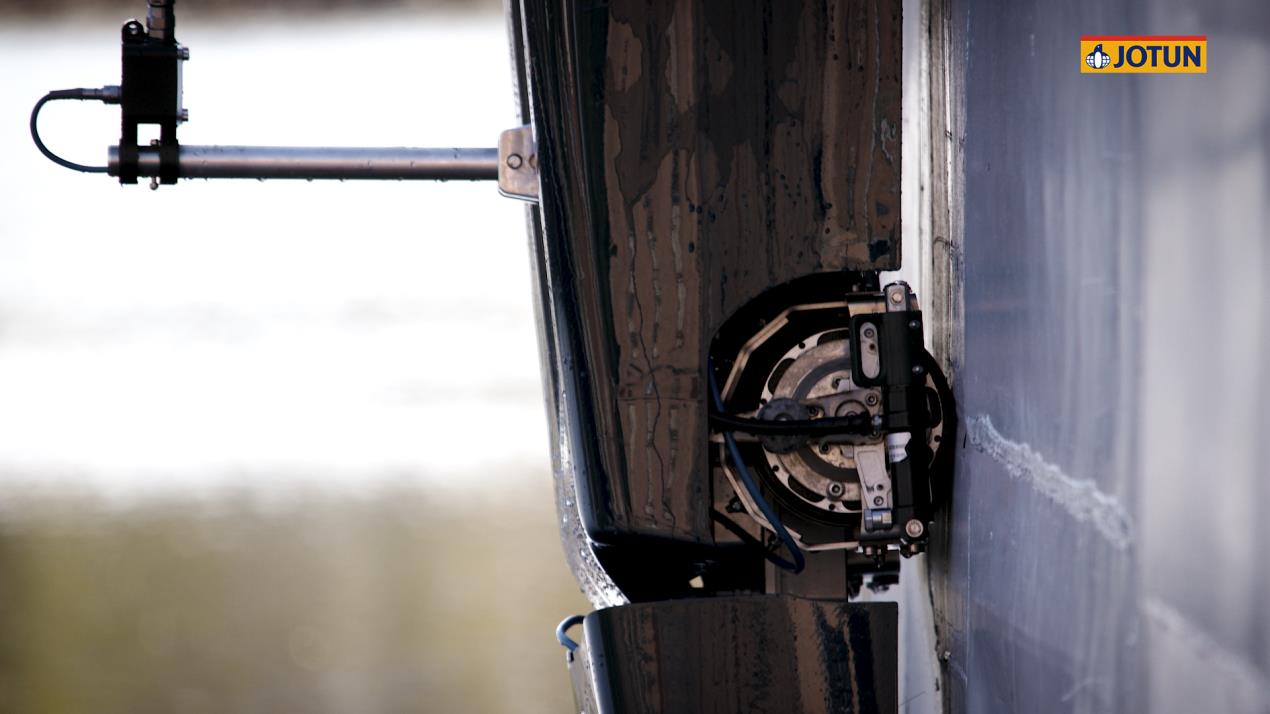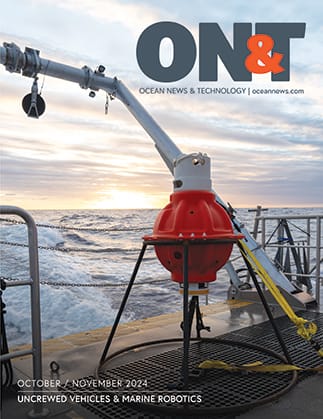It is a unique approach, to a pressing global issue.
At a time when the cloud of relentless bad news feels like it’s suffocating us all, it’s beyond refreshing to get a breath of something positive. And Jotun, which provides coating and paint solutions for around 20% of the entire world fleet, has something truly uplifting to report.
Jotun, together with its partners, has developed a revolutionary solution that effectively solves the pressing industrial and environmental problem of biofouling on vessel hulls. It’s been christened Jotun Hull Skating Solutions, or HSS for short.
Public enemy number one
But before we get on to the solution, let’s assess the problem.
Biofouling harms all of shipping’s stakeholders, from owners, to society and the oceans themselves. The accumulation of aquatic organisms on otherwise smooth vessel hulls leads to increased frictional drag, resulting in significant vessel speed loss and inefficiency. As a consequence, more fuel has to be consumed to maintain speed and maneuverability, meaning higher costs and greater emissions. The last thing both shipowners and our fragile natural world needs.
 In fact, according to the IMO, world fleet fuel consumption could fall by as much as 10% if hulls and propellers can be kept as clean as possible. A significant figure in these pressing times. In addition, fouled vessel hulls are the main driver in the spread of marine invasive species, which can devastate ecosystems and drive local species extinction. To illustrate this, a study from New Zealand attributed over 70% of aquatic invasive species to biofouling, with only 3% originating from untreated ballast water – previously seen as the main culprit in this global phenomenon.
In fact, according to the IMO, world fleet fuel consumption could fall by as much as 10% if hulls and propellers can be kept as clean as possible. A significant figure in these pressing times. In addition, fouled vessel hulls are the main driver in the spread of marine invasive species, which can devastate ecosystems and drive local species extinction. To illustrate this, a study from New Zealand attributed over 70% of aquatic invasive species to biofouling, with only 3% originating from untreated ballast water – previously seen as the main culprit in this global phenomenon.
Proactive prevention
“We wanted to solve this pressing problem with a definitive solution, that was our simple starting point,” explains Geir Axel Oftedahl, Business Development Director, Jotun. “Biofouling is a burden neither the industry nor the planet can tolerate, so we decided to think new – to approach the problem from a different angle.”
Oftedahl is quick to stress that there are many excellent antifouling coatings on the market at present, including Jotun ones, but that ships facing the greatest biofouling challenges will still require periodic reactive cleaning. And this, he adds, lacks standardization, meaning varying quality from location to location and operator to operator. As a result, it can severely damage coatings and assets, with practices involving outdated equipment such as hard brushes and is potentially very damaging to the environment, with the dislodged lifeforms simply drifting down to set up a new home in a new ecosystem.
 Geir Axel Oftedahl, Business Development Director, Jotun
Geir Axel Oftedahl, Business Development Director, Jotun
“That made us think, quite literally, proactively,” he explains. “About how we could stop biofouling from taking hold in the first place. After all, a prevention would negate the need for a cure.
“Surely, that’s the right way to approach such a problem. An idea we can all, at this moment in history, relate to.”
Startling innovation
Jotun’s response sets a new standard in antifouling innovation. It’s not just a coating, it’s the answer.
The most startling aspect of their multi-faceted solution is arguably the HullSkater. This remotely operated robot stays with the vessel at all times – lodged in a custom housing on deck when not in use, roaming the vessel on magnetic wheels when operated through Jotun’s dedicated control centers via 4G connection.
The compact unit – imagine a robotic lawnmower, only one that’s very good at diving – is equipped with high definition cameras and sensors, helping to monitor potential biofouling and collect data, while also empowering the operator to clean to a standardized level of excellence, every time. This is conducted with the HullSkater’s built in brushes ensuring zero damage to the vessel and its specially developed Jotun SeaQuantum Skate coating.
The whole process takes between just two and eight hours, dependent on vessel size and condition.
Tackling the toughest challenges
“With proactive condition monitoring, utilizing our proprietary fouling prediction algorithm, we can accurately predict levels of fouling and customize service levels and guarantees for each individual owner and vessel,” notes Oftedahl’s colleague Tom H. Evensen, Sales Director, Hull Performance Solutions – Jotun. “Effectively, that means we can catch biofouling at a very early stage, slime or biofilm and ensure ‘always clean hulls’, with minimal speed loss, for our global customer base.
“Quite simply, there is nothing else like it on the market.”
HSS, which has been thoroughly piloted and vessel tested for over two years, is tailored for vessels facing the greatest biofouling challenges. It offers shipowners in this niche unlimited idle days, minimal reactive cleaning requirements, an expected maximum speed loss of just 1.0% over a standard five-year drydocking period, and a minimum fuel cost saving of 12.5% (compared to a vessel with typical average performance). In other words, beyond the IMO’s 10% figure, even for the vessels facing grave biofouling issues.
“Despite the excellent coatings currently available, owners facing the most challenging operations need a new solution for optimal hull performance… and this is it, “states Evensen. “If all vessels in our targeted segments converted to HSS, it would result in a CO2 emissions reduction of at least 40 million tons per year, not to mention huge benefits in terms of operational expenditures.
“We believe that is an incredible powerful proposition.” Shipowners and operators worldwide will no doubt be nodding heads in agreement.
 Sustainable success
Sustainable success
Jotun is now in the final stages of commercialization with HSS and is currently recruiting selected owners to be the first to benefit from the game changing solution.
“This is an issue that goes beyond biofouling,” Oftedahl concludes. “With the performance levels we can offer – the efficiency, economy and environmental standards HSS is capable of delivering – this is more than an operational matter, it’s a business-critical decision.
“Biofouling is our industry’s enemy and HSS is here to help. This is an innovation that we firmly believe can pave the way for a more sustainable shipping industry.” And that, without question, is good news for everybody.

